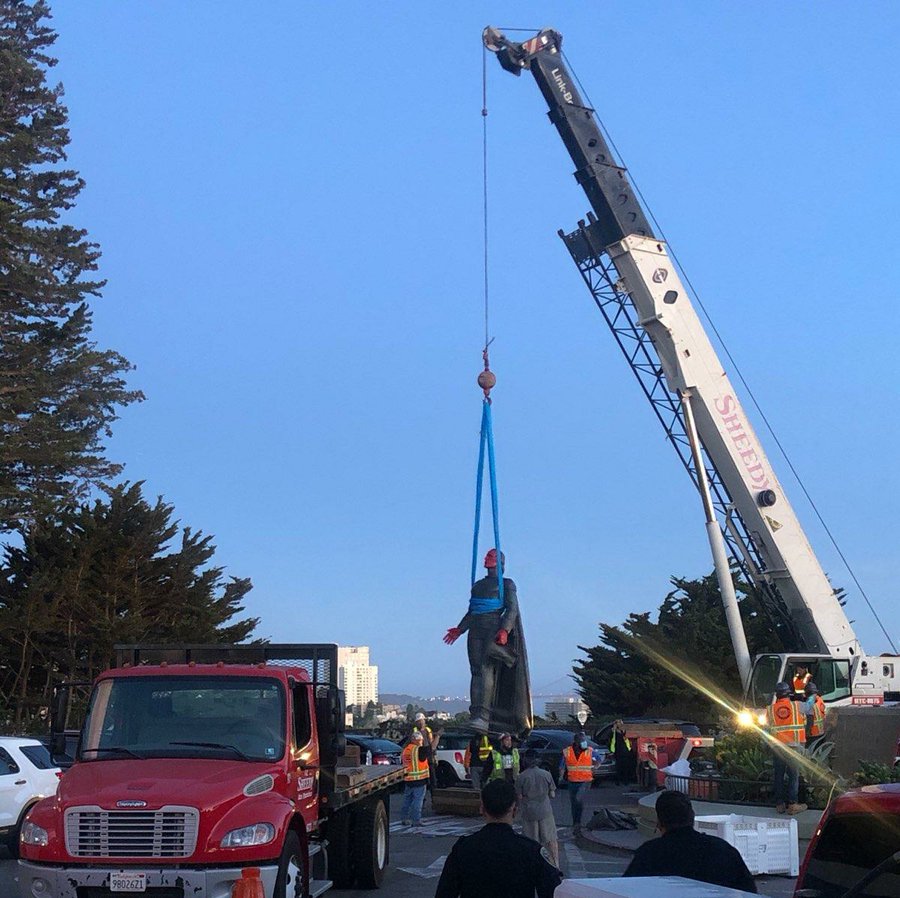
The Vatican’s rejection of the legal and political doctrine (the “Doctrine of Discovery”), according to which European colonial powers and North American governments seized the lands of indigenous peoples, allegedly under the guise of taming the native population, was welcomed by the Catholics of the indigenous peoples of the Americas, along with the bishops of the United States and Canada. This was reported on March 31 by UCA News.
“This is a step in the right direction (and)… a powerful statement”says Deacon Don Blackbird of the Omaha Indian Tribe and head of the St. Augustine Indian Mission in Winnebago, Nebraska.
“I was very happy to see him”said Mitch Case, Regional Advisor for Region 4 of the Métis Provisional Council of Ontario. “The work has been done for decades, and this is a step forward”.
At the same time, “there is still a lot of work to be done,” said Case, who was one of several Canadian, Métis and Inuit First Nations delegates who met Pope Francis in Rome in 2022 ahead of the pontiff’s repentant pilgrimage to Canada. in July 2022. . During his visit, the pope formally apologized for the church’s role in the country’s boarding school system in the 19th and 20th centuries.
The schools were part of the US and Canadian government strategy to forcibly assimilate indigenous people by separating children at an early age from their parents, families and communities, depriving them of the opportunity to speak their native language and experience indigenous culture. Both US governments have engaged with Catholic Church leaders who have abandoned the previous model of integrating missionaries into indigenous communities and providing local education. The boarding school system eventually caused severe damage to the indigenous family and social structure and witnessed the physical, mental, and sexual abuse of thousands of students.
On March 30, the Vatican Dicasteries for Culture and Education and for the Promotion of Integral Human Development issued a joint statement on the “doctrine of discovery,” a concept first formulated to support European claims to land outside Europe. continental.
The statement says that some scholars have argued that the doctrine found its basis in various 15th-century papal bulls, including Pope Nicholas V’s Dum Diversas (1452) and Romanus Pontifex (1455), as well as Pope Alexander VI’s “Inter Caetera” ( 1493).
The “doctrine of discovery” is not part of the teachings of the Catholic Church, the statement says, adding that “historical research clearly shows that bulls that were written in a historical period and related to political issues have never been considered an expression of the Catholic faith.”
However, “the Church recognizes that these papal bulls did not adequately reflect the equal dignity and rights of indigenous peoples,” and the documents “were altered for political purposes by rival colonial powers to justify immoral actions against indigenous peoples”the statement said. he said he, pointing out that these actions “sometimes carried out without opposition from ecclesiastical authorities”.
“It is fair to admit these mistakes, acknowledge the terrible consequences of the assimilation policy and the pain felt by indigenous peoples, and ask for forgiveness”says the statement.
The United States Conference of Catholic Bishops and the Canadian Conference of Catholic Bishops supported the Vatican statement.
The US bishops expressed “deep sorrow and regret” at “times when Christians, including church authorities, failed to fully resist the destructive and immoral actions of rival colonial powers.”
The Canadian bishops said in a March 30 response that they were “grateful” for the Vatican’s message, adding that “numerous and repeated statements by the church and popes throughout the centuries have defended the rights and freedoms of peoples indigenous peoples”, referring to the statement of Pope Paul III. message to the Bull Sublimis Deus” (1537), which opposed the enslavement of the indigenous people and the deprivation of their property.
The Vatican statement also “Support is expressed for the principles of the United Nations Declaration on the Rights of Indigenous Peoples, the implementation of which will help improve the living conditions of Indigenous Peoples, protect their rights and support their self-government.” development in continuity with their identity, language, history and culture”says the statement.
“In terms of economic and environmental justice, all of these issues have their roots in this 500-year-old idea that Western society has the right to enslave us.”emphasized Fr. Caso. “Whether or not it is considered (the “Doctrine of Discovery”) as part of Catholic theology or teaching, whether the influence persists, whether native peoples, in the broadest sense, are still homeless and destitute in their lands, so words are just words. Now we need to see action…the church is using its influence and moral authority to achieve meaningful justice for indigenous peoples.”.
Such cooperation must start with “sitting down and listening to indigenous peoples and taking concrete steps together,” he explained.
One concrete movement so far is the Catholic Church in Canada’s Indigenous Reconciliation Fund, which has raised nearly C$9.5 million ($7 million), or nearly a third of its C$30 million goal ( 22 million dollars). So far, the amount raised represents contributions from seven of the 73 Catholic dioceses and dioceses in Canada, and none from Quebec and Eastern Canada, but there are still four years to go. These funds will support reconciliation initiatives for the benefit of indigenous residents, boarding school survivors, their families and communities.
“I just encourage (the bishops) to continue to work with their local tribal communities to uncover the hurts of the past so that they can be honestly brought to light and healed, and so that there is justice and faith can be expanded.” said Deacon Blackbird.
Source: Rossa Primavera
I am Michael Melvin, an experienced news writer with a passion for uncovering stories and bringing them to the public. I have been working in the news industry for over five years now, and my work has been published on multiple websites. As an author at 24 News Reporters, I cover world section of current events stories that are both informative and captivating to read.
